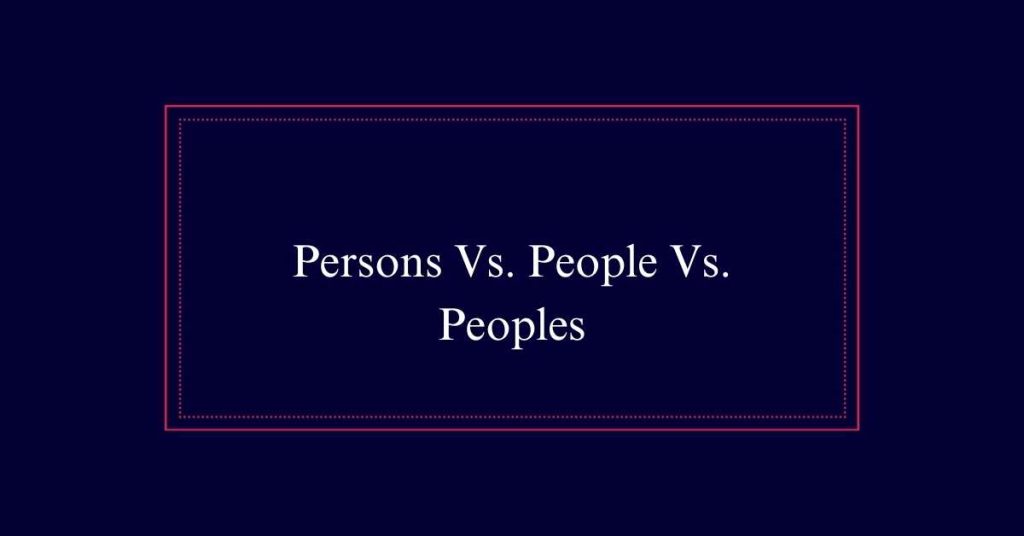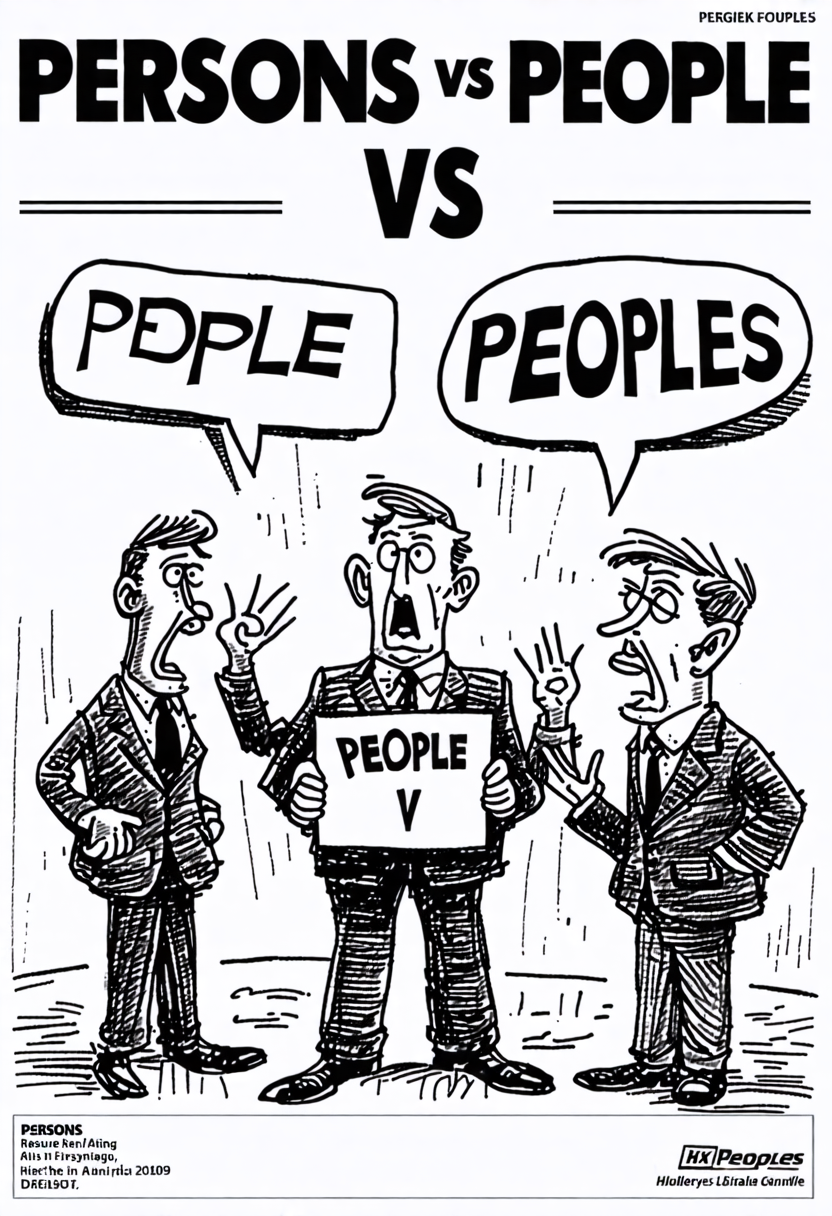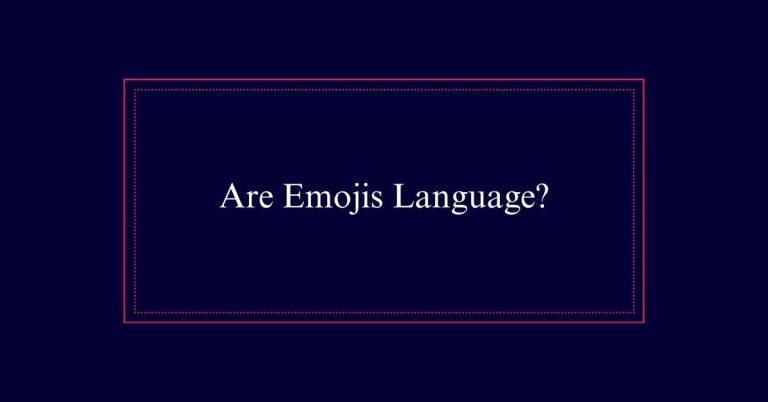Persons Vs. People Vs. Peoples
The term ‘person’ derives from Latin *persona*, initially meaning an actor’s mask. ‘People’ comes from Latin *populus*, indicating groups within a community. In legal contexts, ‘persons’ is used to emphasize individual responsibility and clarity. Generally, ‘people’ is the accepted plural form for daily use, referring to groups. However, ‘peoples’ is used to discuss multiple distinct ethnic groups or nationalities.
Origins of Person and People
The origins of the words ‘person’ and ‘people’ trace back to Latin roots with distinct meanings. ‘Person’ comes from the Latin word *persona*, which originally referred to a mask worn by actors in a play. Over time, it evolved to signify an individual human being.
On the other hand, ‘people’ stems from the Latin word *populus*, which denoted a group of individuals belonging to the same nation, community, or ethnic group. These different origins have influenced their modern usage.
‘Person’ typically refers to an individual, while ‘people’ is used to talk about a collective group. Understanding these roots helps clarify why ‘person’ and ‘people’ are used differently in contemporary language.
Legal Context: Persons
In legal contexts, the term ‘persons’ is frequently used to emphasize individual responsibility. Legal documents often use ‘persons’ to refer to individuals subject to laws and regulations.
This term is seen in phrases like ‘persons of interest’ or ‘missing persons,’ highlighting specific individuals rather than groups. The use of ‘persons’ underscores personal accountability, essential in legal proceedings. This precision guarantees clarity in identifying those involved in legal matters.
Unlike casual or business contexts, where ‘people’ is preferred, legal language demands the formality and specificity that ‘persons’ provides. This distinction helps maintain the integrity and accuracy of legal documents, reinforcing the importance of individual roles and responsibilities.
General Usage: People
People is the preferred plural form of person in everyday language. It is widely accepted and used in most contexts. Whether referring to a group of friends, a crowd at an event, or the population of a city, people is the go-to term. This usage is intuitive and familiar, making communication clear and effective.
In contrast, persons sounds formal and is typically reserved for legal or formal writing. Using people instead of persons in casual or general speech helps to maintain accessible and relatable language. Additionally, people avoids the overly technical tone that persons can convey.
For general usage, people is the most appropriate and widely understood choice.
Ethnic Groups: People Vs. Peoples
While people is the standard plural for person in general contexts, discussing ethnic groups requires understanding the distinction between people and peoples.
People is used when referring to a single ethnic group or nationality, such as ‘the people of Japan.’ This term denotes a unified group sharing common cultural or national identity.
Conversely, peoples is reserved for discussing multiple distinct ethnic groups within a shared context. For example, ‘the Indigenous peoples of North America’ highlights the diversity among various tribes and cultures. Using peoples emphasizes the uniqueness and plurality of each group.
Understanding this distinction guarantees accurate and respectful references to diverse ethnic and cultural identities.
Formal Writing: Persons
Legal documents often employ the term ‘persons’ to specify individual accountability. This usage is important in contexts where distinguishing between individuals within a group is necessary. Terms like ‘persons of interest’ or ‘missing persons’ are common in legal settings. Using ‘persons’ guarantees that each individual is recognized and held responsible separately. This precision is essential in legal language.
Imagine the clarity when every individual is accounted for.
Feel assured knowing legal terms are precise and unambiguous.
Sense the importance of individual responsibility in legal contexts.
Appreciate the specificity that legal documents demand.
Understand the critical role of ‘persons’ in maintaining legal integrity.
Using ‘persons’ outside legal contexts can seem overly formal and is generally avoided.

Everyday Contexts: People
Therefore, in everyday contexts, the term ‘people’ is the preferred plural form of ‘person.’ This usage is common in both spoken and written language. For instance, when discussing a group attending an event, one would say, ‘Many people attended the concert.’
The term ‘people’ encompasses a broad range of everyday scenarios, such as workplaces, social gatherings, and public spaces. It is informal yet widely understood, making it suitable for most situations. Unlike ‘persons,’ which is considered overly formal and is reserved for specific legal contexts, ‘people’ is versatile and user-friendly.
Therefore, in daily interactions and communications, ‘people’ remains the go-to term for referring to more than one individual.
Legal Terminology: Persons
In legal terminology, the word ‘persons’ is used to emphasize individual accountability. This specific usage is crucial in ensuring clarity and precision in legal documents and proceedings.
Legal terms like ‘persons of interest’ and ‘missing persons’ reflect this emphasis on individual responsibility. It is important to note that ‘persons’ is avoided in non-legal contexts because it sounds overly formal and detached.
Consider the impact of using ‘persons’ in legal contexts:
- Individual responsibility: Each person is accountable.
- Clarity: Reduces ambiguity in legal texts.
- Precision: Each word is chosen carefully.
- Formal tone: Maintains the seriousness of legal matters.
- Avoids group generalization: Focuses on individuals, not groups.
Distinct Ethnic Groups: Peoples
Understanding the term ‘peoples’ is essential when discussing multiple distinct ethnic groups within a shared context. The word ‘peoples’ refers to various groups that have unique cultural, national, or ethnic identities. This distinction is important when analyzing the diversity within a larger region or country. For example, discussing the indigenous peoples of North America highlights the different tribes and their unique cultures.
Here is a simple table to illustrate the difference:
| Term | Usage Example |
|---|---|
| People | The people of France |
| Persons | Legal term: missing persons |
| Peoples | The indigenous peoples of North America |
Business Communication: Avoiding Persons
To maintain professionalism, business communication should avoid the term ‘persons’ due to its overly formal tone. Instead, the term ‘people’ is more appropriate for most business contexts. ‘Persons’ is often associated with legal jargon and can come across as stiff or outdated in everyday business language. Using ‘people’ promotes a friendlier, more inclusive atmosphere.
Consider the following emotional benefits of using ‘people’ over ‘persons’:
- Inclusivity: Fosters a sense of belonging.
- Approachability: Makes communication feel more open and warm.
- Clarity: Reduces confusion and improves understanding.
- Modernity: Keeps language current and relatable.
- Professionalism: Enhances the overall tone of communication.
Plural Forms and Their Uses
Plural forms of person, people, and peoples are used differently based on context and specificity. The word ‘people’ is the common plural form of ‘person’ in everyday language. It refers to a group of individuals.
However, ‘persons’ is used in legal contexts to emphasize individual responsibility, such as in ‘missing persons’ reports.
When referring to multiple ethnic groups or nationalities, ‘peoples’ is the correct term. For example, ‘the peoples of Africa’ includes various distinct ethnic groups within the continent.
It is important to select the appropriate term based on the context to ensure clarity and precision. Misusing these terms can lead to confusion, especially in formal or legal documents.
Frequently Asked Questions
Are “People” and “Persons” Interchangeable in Informal Speech?
In informal speech, ‘people’ is generally preferred over ‘persons.’ While ‘persons’ can be used, it often sounds overly formal. As a result, ‘people’ is the more commonly accepted term in casual conversation.
Can “Persons” Ever Be Used in Creative Writing or Literature?
Yes, ‘persons’ can be used in creative writing or literature. It may be employed for stylistic effect, to adhere to a specific tone, or to emphasize individuality within a narrative or descriptive context.
Is There a Plural Form for “People” When Referring to Groups of Individuals?
When referring to groups of individuals, the plural form of ‘people’ is ‘peoples.’ This term is used to describe multiple distinct ethnic groups or nationalities within a shared context, emphasizing their diversity.







